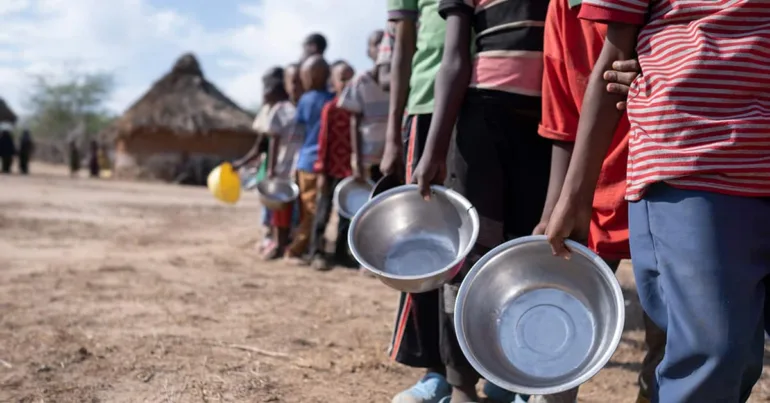The United Nations World Food Programme (WFP) has announced it will be forced to suspend all emergency food and nutrition aid for 1.3 million people in northeast Nigeria by the end of July due to critical funding shortages.
In a statement released Wednesday, the WFP said its food and nutrition stocks have been fully depleted, with the last supplies leaving warehouses in early July. Life-saving assistance will end after the current distribution round.
Without immediate funding, millions face worsening hunger, forced migration, or the risk of exploitation by extremist groups amid escalating violence and record hunger levels in the country.
“Nearly 31 million people in Nigeria are now experiencing acute hunger, a record high. Without sustained funding, WFP’s operations in northeast Nigeria will collapse, threatening regional stability as vulnerable families are left with nowhere to turn,” said David Stevenson, WFP Country Director for Nigeria.
Children are among the most vulnerable. Over 150 WFP-supported nutrition clinics in Borno and Yobe states will close, cutting off critical treatment for more than 300,000 children under two, increasing their risk of wasting.
Conflict and extremist violence have displaced around 2.3 million people across the Lake Chad Basin, straining resources and pushing communities to the brink.
“When emergency aid ends, many will migrate in search of food and shelter, while others may resort to harmful coping strategies, including joining insurgent groups,” Stevenson added.
WFP emphasized that food assistance helps prevent such outcomes by supporting families, rebuilding economies, and fostering recovery.
In the first half of 2025, WFP reached 1.3 million people in northern Nigeria with essential aid, planning to extend support to an additional 720,000 in the second half of the year. However, funding gaps now threaten these life-saving programs.
WFP urgently needs $130 million to prevent a pipeline break and maintain food and nutrition operations through the end of 2025.
As the world’s largest humanitarian organization, WFP delivers critical aid during emergencies while building pathways to peace, stability, and prosperity for those affected by conflict, disasters, and climate change.


